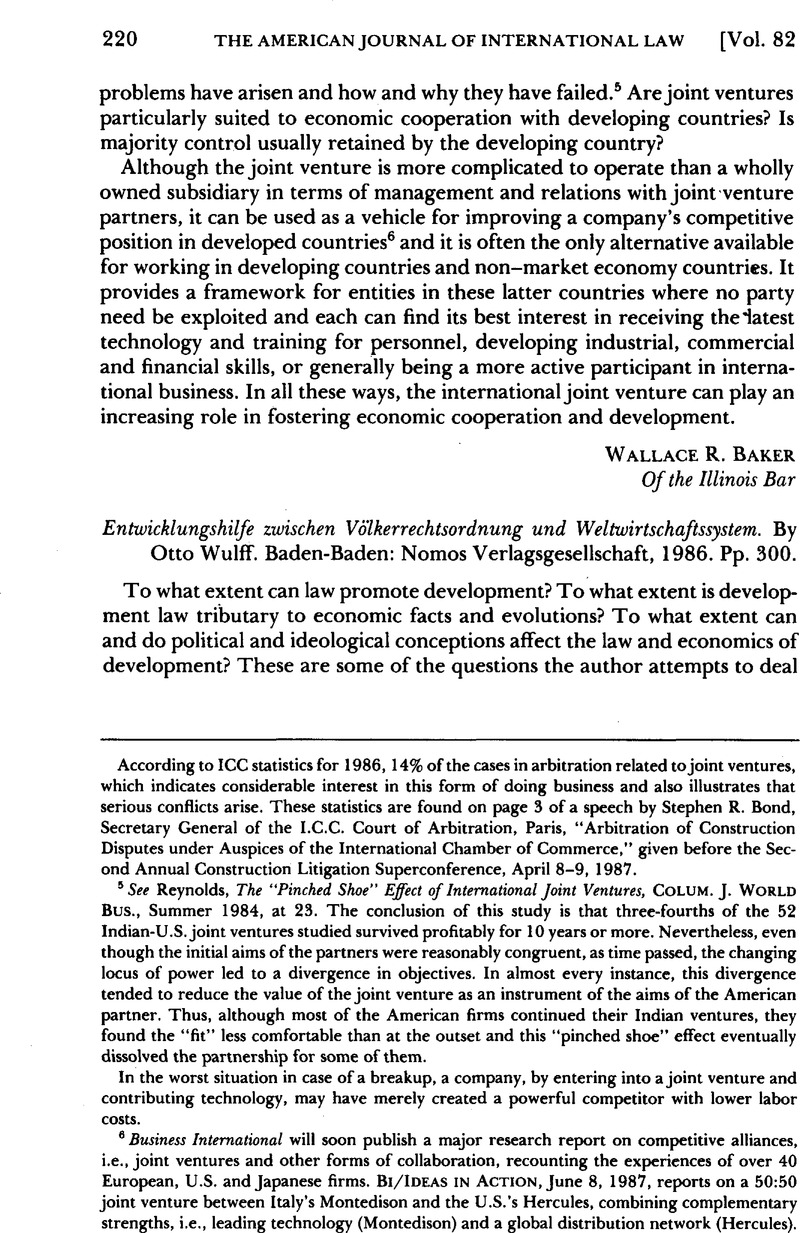No CrossRef data available.
Published online by Cambridge University Press: 27 February 2017

1 Adopted within the framework of UNCTAD in October 1970 and put into effect by the EEC in July 1971 and by most other OECD countries in January 1972. It falls within the ambit of chapter IV of GATT and was accordingly given a waiver from the general most-favorednation clause. Its purpose is to give free access to developed markets for specific products from developing countries.
2 Stabilization fund for exports of agricultural commodities from ACP countries (see note 5 infra) to the EEC, introduced by the first Lomé Convention in 1975. The second Lomé Convention introduced a similar scheme for certain minerals, known as Sysmin.
3 Agreement on a Common Fund for Commodities adopted under the auspices of UNCTAD in 1980. It has not become effective owing to the failure of the main providers of capital, including the United States, to ratify it.
4 This term designates the seabed and ocean floor beyond the jurisdiction of states, i.e., outside the limits of their continental shelves. The regime provides for the setting up of an Enterprise, which is to exploit parts of the Area, while granting concessions to states for the exploitation of the remainder. The terms of the concessions include the obligation of making the technologies used available to the Enterprise so that it can use them for its own activities. It is mainly this provision that several Western countries find objectionable.
5 Sixty-six African, Caribbean and Pacific countries that, for the purpose of negotiating with the EEC, form a single group.
6 Association of South-East Asian Nations grouping the Philippines, Indonesia, Malaysia, Singapore and Thailand.
7 Lomé, the capital of Togo, where the EEC-ACP conventions were signed in 1975, 1979 and 1984.
8 Many Western politicians and scholars level this accusation against both socialist countries and countries of the Third World. In fact, the only major principle contested by these countries is that of the sanctity of private property of foreigners.
9 There is no mention of the Southern African Development Coordination Council (SADCC), the Preferential Trade Area for Eastern and Southern Africa (PTA) and the Communauté Economique des Etats d’Afrique Centrale (CEEAC). As for OCAM, which is listed, it was dissolved in 1985.